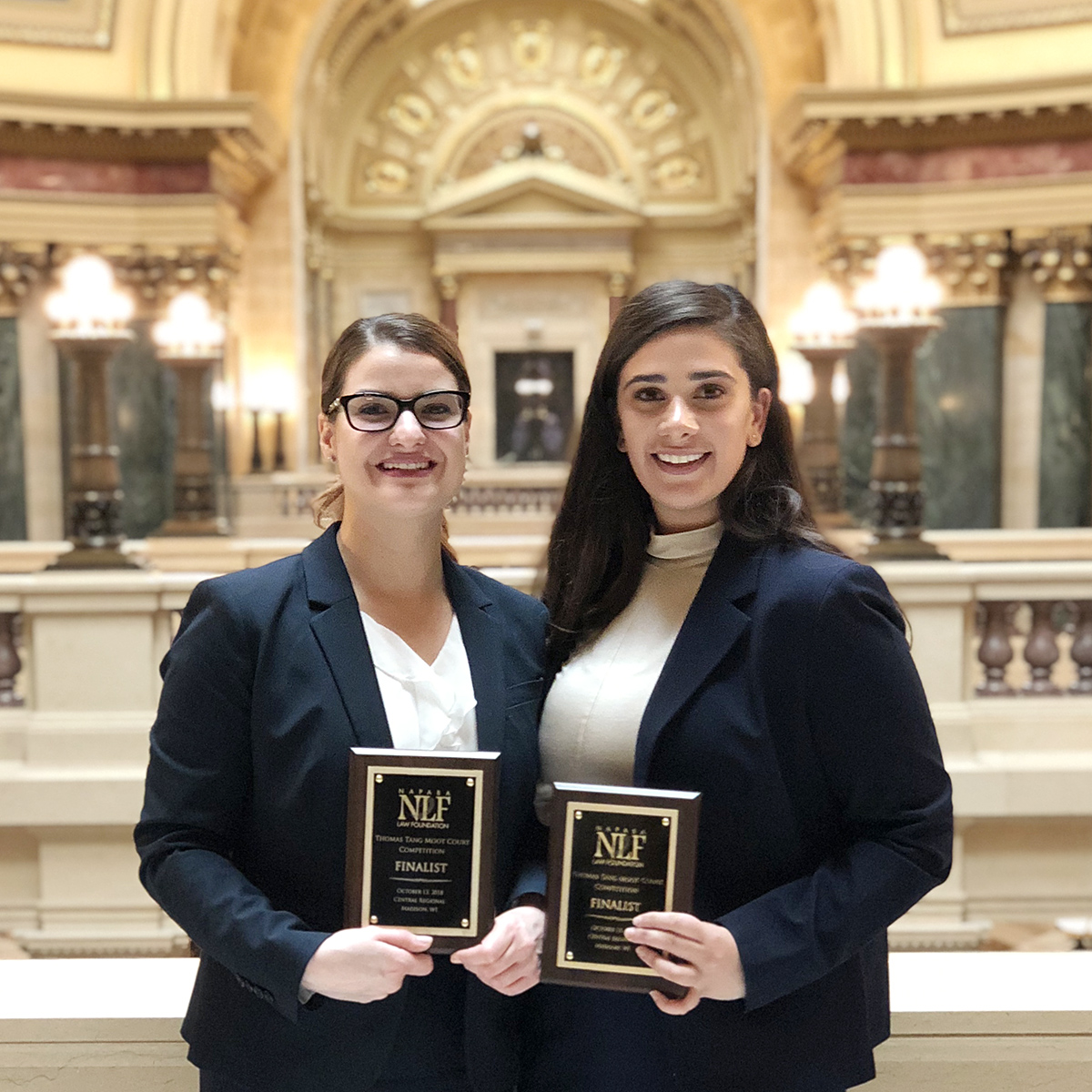The Chicago-Kent College of Law team of Noor Abdulmassih ’20 and Gina Cesario ’20 will advance to the national rounds of the 2018 Thomas Tang National Moot Court Competition, sponsored by the National Asian Pacific American Bar Association. The team placed second in the central regional tournament, held October 13–14 at the Wisconsin Supreme Court in Madison.

From left: Gina Cesario and Noor Abdulmassih
The final rounds will be held Friday, November 9 and Saturday, November 10 at the National Asian Pacific American Bar Association Convention in Chicago. This year, students are arguing a hypothetical First Amendment case involving a fictional law student who was expelled from her state university for off-campus expressive activity that university officials determined was in violation of her school’s honor code.
Abdulmassih graduated magna cum laude from Loyola University Chicago with a bachelor’s degree in English and political science. Cesario earned her B.S. degree from Elmhurst College, where she was on the dean’s list every semester.
A second Chicago-Kent team of Timothy Cho ’20 and Gabriela Herrera ’20 argued well in the regional tournament but narrowly missed advancing to the finals.
University Distinguished Professor Katharine Baker helped the teams prepare. Aima Mori ’19 and Chicago-Kent’s chapter of the Asian Pacific American Law Student Association organized and supported the teams.
Sponsored by the National Asian Pacific American Bar Association Law Foundation, the competition is open to all students but is specially designed to provide Asian Pacific American law students with an opportunity to showcase their writing and oral advocacy skills.
The competition is named for the late Thomas Tang, a senior judge of the U.S. Court of Appeals for the Ninth Circuit. Judge Tang was a strong supporter of the bar association and its activities, including the creation of its moot court competition, which was renamed after his death in 1995.
